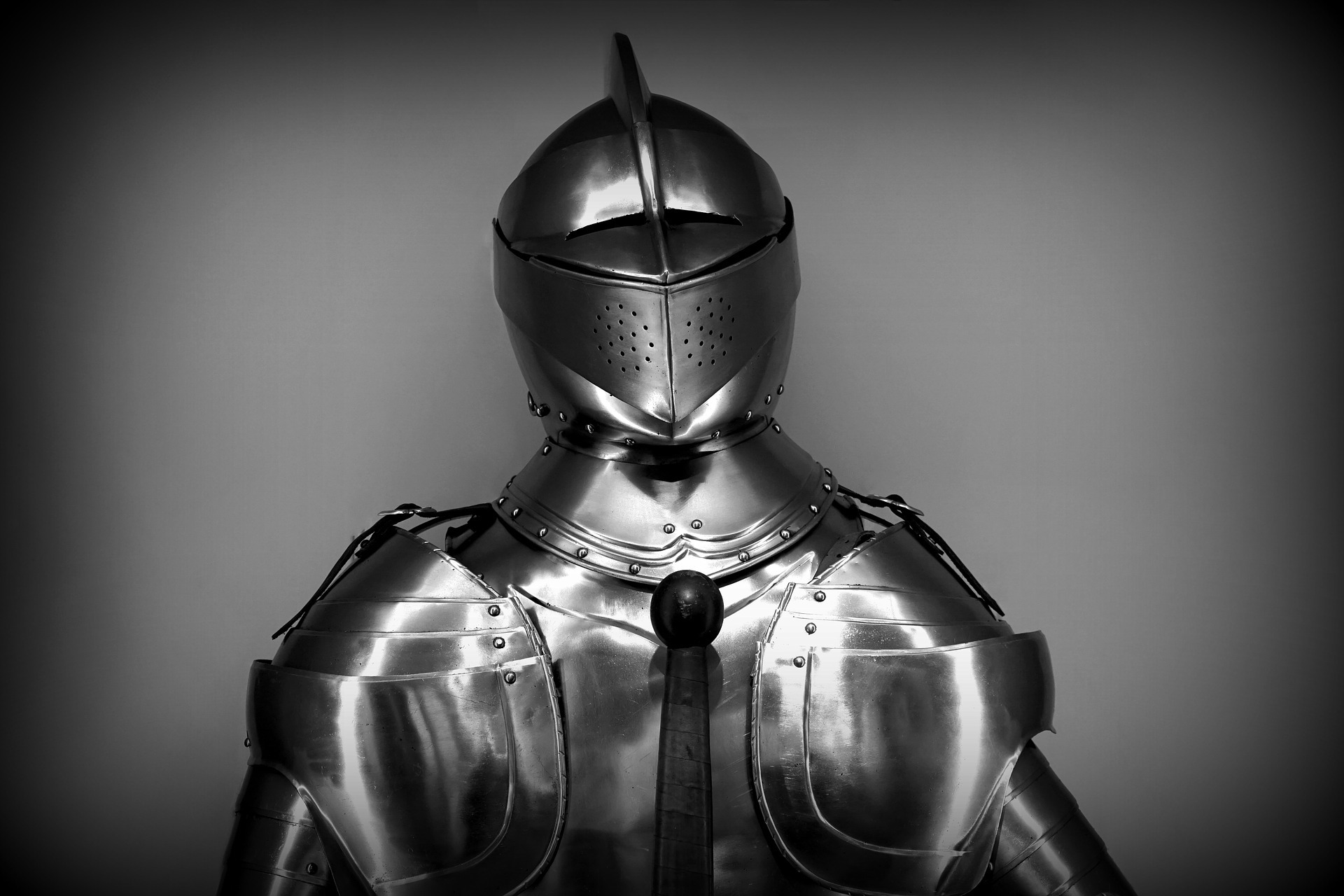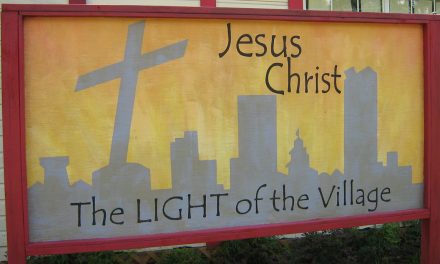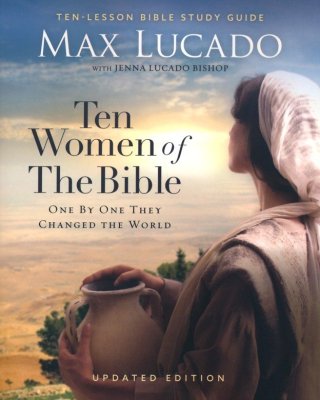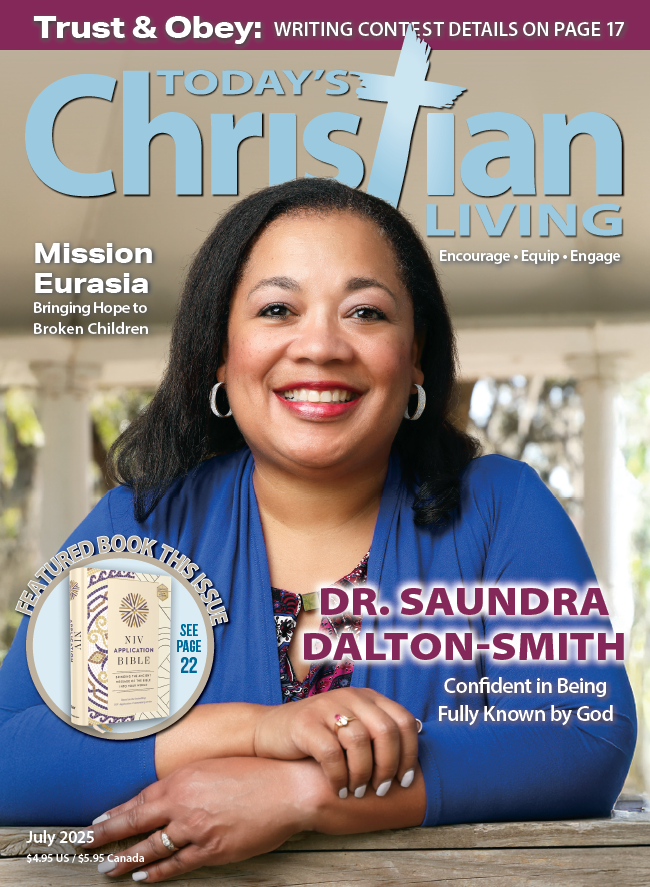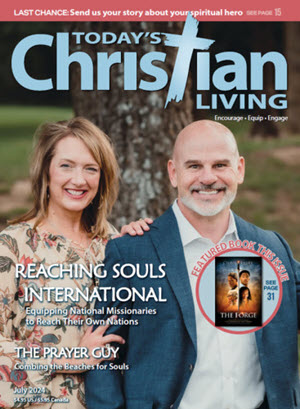If laughter is indeed the best medicine then Chonda Pierce deserves a Ph.D. Known as the “Queen of Clean,” the gifted comedian has carved a successful career making people laugh through her live performances, books and best-selling DVDs.
Her combination of quick wit and Southern charm have earned her a devoted fan base, but it’s her unfettered honesty that resonates most strongly with her audiences. Pierce has always drawn from real life in crafting her stand up comedy, sharing her insights on everything from motherhood to menopause. In recent years, the candid entertainer has shared her battle with depression, shining a light on a topic that’s not widely discussed in church circles.
Munching on sushi at a restaurant not far from her home in Murfreesboro, TN, Pierce is as engaging off stage as she is on. She has a warm smile and is quick with a joke, yet doesn’t shy away from discussing the darker times in her life and how comedy provided relief.
Born in South Carolina, Pierce’s father was a pastor and they moved around the state before relocating to Ashland City, TN, just outside Nashville, when she was 16. “I’d gone through a heavy, heavy ordeal in my childhood,” she says. “My pastor dad left when I was 18. He left our family with one of those tabloid embarrassing situations that the whole town gossips about.”
In addition to her parents’ painful divorce, Chonda lost both her sisters. “My big sister had been killed in a car accident. She was 20,” Pierce says, “and about 20 months or so later my little sister got sick at high school. She kept getting worse and couldn’t keep food down. We took her to a doctor and no antibiotic would seem to help. They started running tests and found out she had leukemia. She was 15 when she died.”
Pierce struggled with the grief and recalls feeling like there was nowhere to turn. “Back in those days, there was no support group when your whole world blows up, especially in the church world,” she says. “If anything was uncomfortable or taboo, you never talked about it. It was a lot to take and so at 20 [I was] trying to escape all of that pain and as a college kid, I got this job at Opryland.”
Country Pearls
Opryland was a popular Nashville theme park that employed singers, dancers and musicians to provide wholesome family entertainment. Pierce didn’t fit the usual mold. “I couldn’t dance. I grew up such a strict preacher’s kid–so I didn’t know how,” she recalls, “so they put me in the country music show, which I didn’t know a whole lot about country music because my dad was so conservative.”
Nevertheless, God helped her find her place. “His hand had to have been in that because a little skinny, scrawny, conservative preacher’s kid from the most dysfunctional background gets a job where five times a day, six days a week you had to make somebody laugh,” she says.
In the beginning, Pierce’s job was to impersonate Grand Ole Opry star and legendary comedian Minnie Pearl, wearing a replica of her signature hat with the dangling price tag. “I had to memorize three pages of Minnie Pearl jokes, put on the hat and go out and make the crowd laugh and it was as much medicine for me as it was for anybody else enjoying the show,” she says. “It was just a soothing balm on a dry skin. It was really, really incredible.” Pierce married her husband David and began raising two children. “Opryland was my summer time job and in the winter I raised my kids,” she says, “but one day when you are 30 and the kid next to you is 17, that’s when you go, ‘I really should get a real job.’”
That’s when she began working as a secretary on Nashville’s famed Music Row, an area lined with record label offices and music publishing companies. “In the early ‘80’s the scene on Music Row was not as healthy as it is now. I’d be at AA every night if I’d stayed,” she says. “For some reason I was at least smart enough for a brief moment in my life to [say], ‘I cannot change my life and put some standards in my life and stay in this. I’ve got to step out of it for awhile and get stronger.’ So that’s how it was for me. I stepped out of it. I’ll never forget, after growing up in church and hearing 150 million sermons and revival meetings, I got saved in the toilet. I actually went into the bathroom, in [publisher] Judy Harris’ office and just knelt by the throne and said ‘God, get me out of this. Help me get stronger. I want to be a good mom and a good wife and I want to make some changes in my life.’”
Pierce quit her job and soon began getting calls to do comedy. “I would be Miss Minnie for 10 minutes and then I’d take my hat off. I was my own opening act for years,” she says with a grin. “Before long the 10 minutes of Miss Minnie became three minutes and then I did more of me and then before long I didn’t put the dress on at all. Comedy, I guess, found me.”
Since then Pierce has appeared on the Grand Ole Opry, numerous Gaither Homecoming projects, Wanda Sykes Show and ABC-TV’s popular talkfest “The View” as well as churches and concert halls all over the country. Her comedy is regularly featured on XM and Sirius satellite radio and she co-hosted the 2012 Gospel Music Association Dove Awards. She’s written seven books, two children’s books and recorded 13 comedy projects, including her most recent DVD, the hilarious “I’m Kind of a Big Deal.”
God’s Sense of Humor
From her childhood in South Carolina to her early days as a comedian to her inroads into mainstream culture, Pierce acknowledges God has ordered her steps. “Some steps I’d argue he could have skipped,” she says with a slight smile. “I was at the height of my career in my genre, top of my game. I’d just got my first or second platinum [award, signifying sales of over a million units on a recorded project], which is a big deal. I was just really comfortable with where I was… then the onset of menopause began and it really does change a woman’s biology. It changes the way you think about yourself, the way you think about life. You have this inward panic of ‘I’m aging. Things are changing. I can’t have babies anymore.’ All that happened and I hit the wall.”
Years of dysfunction and memories of her father’s emotional abuse began to paralyze the bubbly comedian. “My father was not a consistent man and the person who he was in the pulpit was not always the kind of dad he portrayed at home,” she says. “Dysfunction not dealt with will be like a mold. It will be like a tumor until you begin to get some of it out. I had been taught– because of my very traditional conservative upbringing in the church–that you talk about nothing. You don’t bring anything up… In the church world, we think we’re more important than we really need to be thinking. We think if we say something it’s going to make God look bad. We’ve got Christians out there working so hard to be God’s PR person. I’ve seen the Grand Canyon, He doesn’t need anybody’s help. When I hit the wall, I had to learn to hear my voice speak truth. That’s the wonderful thing about comedy. Comedy is the most truthful art form there is, that and country music.”
Laughter in the Looney Bin
Pierce admits to hitting bottom before she got better. A doctor had prescribed Zoloft and after two years of taking it, she felt better and quit taking the drug. “I weaned myself without telling anybody and then I spiraled to a really, really deep depression,” she says. “I didn’t get out of bed. I’d been crying for 24 hours straight almost. I couldn’t sleep… I told my daughter, ‘If you really love me, I wish you would help me and get on the rocks out in the backyard so I could jump in the river.’ I tell this in concert all the time. It’s the story that I thought would be the end of my career, but the very thing that I thought would ruin me is the very thing that people are drawn to hear. This is what they want to know, the truth.”
After threatening suicide, her husband called her pastor and at one point she says nearly everyone seemed to be praying for her and anointing her with oil. “I smelled like a pepperoni pizza,” she says. “I had olive oil from the top of my head to the bottom of my shoes. I couldn’t go to the potty, I’d slip right off the toilet.”
Pierce’s pastor called her doctor and she was placed in Vanderbilt Psychiatric Hospital for treatment. In a rather surreal moment, she recalls being in the recreational room and seeing one of her comedy DVDs on the shelf. She put it on the bottom shelf, under a stack of DVDs hoping no one would notice she was the woman on the cover.
She recalls having her son bring her some clothing from home. “I had a rope in my sweatpants and you couldn’t have that. You couldn’t have your hairbrush because you might brush yourself to death. They don’t let you have anything that could hurt you when you are at a psychiatric hospital. My teenage son went to the garage, to the Goodwill box, pulled out some stuff and brought it to me, so I had a pair of my husband’s boxers on. You know if a man is throwing away underwear that is some fancy, paper-thin boxers, and he brought a great big yellow t-shirt. On the front it said Looney Tunes. I guess my son thought that would be so funny,” she says shaking her head and laughing.
Pierce recovered and has been on a mission to help others. She wrote a book about her experience, Laughing in the Dark, published by Simon & Schuster. She also founded the Branches Recovery Center to help those suffering from depression.
These days she’s busier than she’s ever been. Her career is managed by a Hollywood agent who has guided the careers of such comedic heavyweights as Billy Crystal and Robin Williams. She recently completed three movies, is performing in some mainstream comedy venues in addition to her usual church dates and is in discussions about starring in a TV show. When she’s not on tour, she and her husband divide their time between Los Angeles and Tennessee.
“You learn more in a valley than you ever do on a mountain top,” she says of her tumultuous life. “I’m learning to live in a state of constant community with God. I got to a place in my life where I realized I could bang my head against the wall in anger or I could sob and cry in deep depression or I could fly high as a kite in some manic state. None of it changes God… What I finally got comfortable with is that the gift of my depression is how I honor Him. I hang out with Him. I pray with Him. I talk with Him. I am a faith-driven person because of who He is, not because of how He makes me feel. I think that’s been the biggest comfort zone of my life.”

